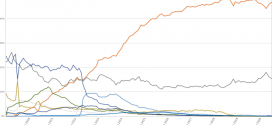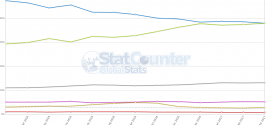I feel like this is actually becoming a contemporary problem. A few years back we had to deal with that SOPA and ACTA and whatever they were called problems. I personally blame the paranoia of the government: they were unable to censor or restrict access to information, so they decided to simply monitor them all instead. That’s not fine, no matter how you look at it: sure, it’s for the so called “security” of people, but it leaves too much room for interpretation and a vile breach of privacy rights. This is n even bigger problem considering we live in the age of the internet, where more and more things are done online and practically EVERYTHING requires you to be connected online in order to do the most mundane of tasks ( and that’s not really a good thing, but I’ll tell you about it some other time ).
This is exactly why, in order to protect its business, its interests and the people using them, the major tech companies ( like Microsoft, Google, Yahoo, Twitter, Facebook, LinkedIn and AOL ) on the web have formed an alliance to pursue a reform, one detailed in 5 principles. Those principles revolve around: Limiting governments’ rights to collect users’ information, Oversight and accountability, Transparency about government demands and so forth – the idea is, they want governments to respect the free flow of information and avoid conflict between two or more governments in the process. Actually, come to think of it, had this become a thing sooner, Huawei might still be selling products in the US, instead of choosing to go back to their own country since the US is too paranoid China is spying on them through their devices.
The first principle is quite logical: it states that governments limit their surveillance to individuals, those suspected of wrongdoing, and not doing as they are now and collect bulk data of internet communications from everyone. Also, those said governments should limit their ability to compel service providers ( such as network carriers ) to hand over user data.
The second principle is also quite logical: it demands that these government demands for user data be fulfilled with transparent and public rulings, by independent courts, and not as they are done now: hidden from the public eye. Also, the companies want to be able to reveal specifics to users about government demands:
“Governments should allow companies to publish the number and nature of government demands for user information.”
Finally, the companies want a robust and principled framework of laws between governments concerning data collection as to avoid conflicts between governments. Again, as reference, take the case of Huawei and the accusations it received from the US government.
If you’re interested in reading more about the subject, refer to the source link HERE.









